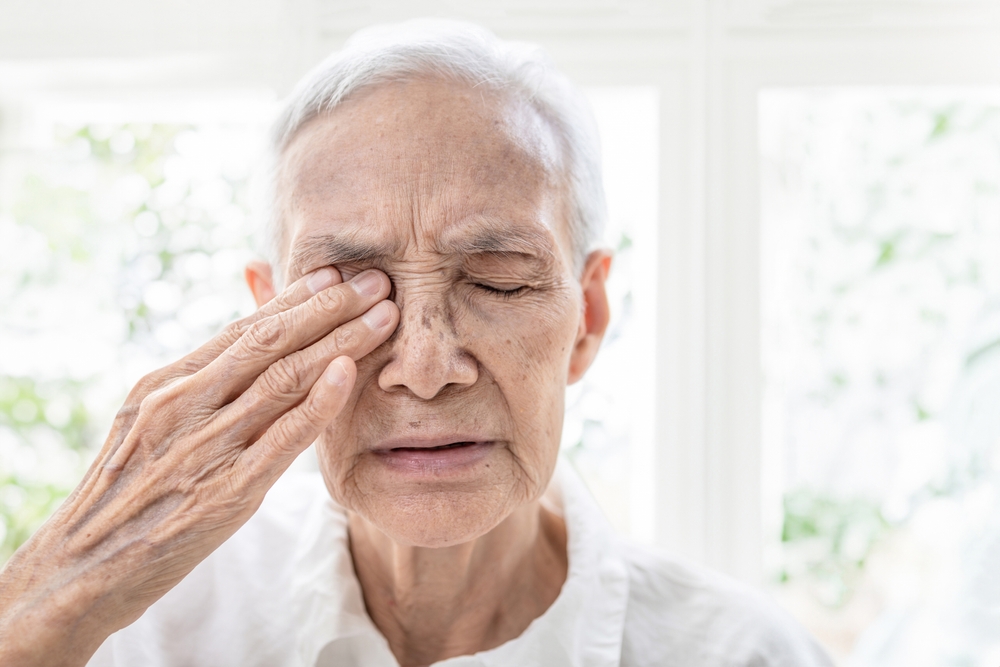
Seniors are more likely to experience serious vision problems due to a variety of age-related eye conditions and systemic health concerns. Understanding these risks and prioritizing routine eye exams can help preserve vision and quality of life.
Cataracts
Cataracts cause the lens of the eye to become cloudy, leading to blurry vision, faded colors, sensitivity to light, and difficulty seeing at night. Seniors may notice halos around lights or find it hard to read or drive, especially after dark. While cataracts develop slowly, they can eventually interfere with everyday activities and reduce independence.
Age-Related Macular Degeneration (AMD)
AMD affects the macula causing blurred or distorted sight. People with AMD may experience difficulty recognizing faces, reading small print, or performing tasks that require fine visual detail. There are two forms of AMD: dry and wet. Dry AMD progresses slowly, while wet AMD can cause rapid vision loss.
Glaucoma
Often referred to as the “silent thief of sight,” glaucoma damages the optic nerve, typically due to increased intraocular pressure. It often has no early symptoms and progresses gradually, eventually affecting peripheral vision and, in advanced stages, central vision. Because the damage is irreversible, early detection is crucial. Seniors are particularly vulnerable, especially if there’s a family history of glaucoma.
Diabetic Retinopathy
Seniors with diabetes face a higher risk of developing diabetic retinopathy, a complication caused by damage to the retina’s blood vessels. In its early stages, it may not present any symptoms, but as it progresses, it can lead to blurry vision, dark spots, and vision loss.
Dry Eye Syndrome
Tear production naturally decreases with age, making dry eye syndrome a common complaint among seniors. This condition leads to a gritty or burning sensation, redness, fluctuating vision, and increased sensitivity to light. Environmental factors, certain medications, and underlying health conditions can exacerbate the problem. Chronic dry eye not only causes discomfort but can also increase the risk of eye infections and damage to the cornea.
Systemic Health Conditions
In addition to natural aging, systemic health issues that are more common among seniors (such as diabetes, hypertension, and cardiovascular disease) can have a direct impact on eye health. Medications for these conditions may also contribute to visual changes or dry eyes.
The Importance of Routine Eye Exams
Routine eye exams are essential for detecting issues early - often before symptoms appear. For seniors, comprehensive eye exams can help:
Monitor changes in vision and eye health
Detect signs of systemic diseases
Update prescriptions for glasses or contact lenses
Improve overall quality of life through better vision
Most serious eye conditions progress gradually, and by the time symptoms are noticeable, the damage may be irreversible. That’s why regular check-ups with an optometrist are so important, especially after the age of 60.
Protect Your Sight at Eyes & Optics
Aging increases the risk of serious vision problems, but proactive eye care can make a world of difference. By staying informed and scheduling routine eye exams, seniors can catch potential issues early and protect their vision for years to come.
Schedule your next eye exam at Eyes & Optics and take an important step toward maintaining your vision and eye health. Visit our office in Farmington Hills, Michigan, or call (248) 788-1610 to book an appointment today.









